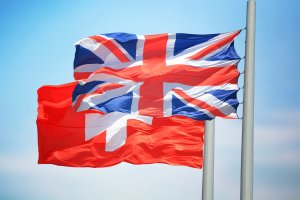- Commercial disputes

Shorter Reads
Advice for directors in financial services in light of ClientEarth’s threat of legal action against directors of Shell
ClientEarth recently took the first step in a legal action against the board of directors of Shell, notifying them of a potential claim for failing to adequately prepare the company for a transition to net zero and manage climate risk. According to ClientEarth, this poses serious questions for the long-term value of the company.
2 minute read
Published 22 April 2022
Key information
- Specialisms
- Dispute Resolution
- Services
- Commercial disputes
This threatened claim, which would be one of the first claims seeking to hold a board of directors personally liable for failing to adequately prepare for the net zero transition, will be of particular interest to directors, including those in financial institutions and the financial services sector. Should the case proceed and ClientEarth succeed, a host of claims may be brought against directors for similar failings.
This would not however be the first case brought by ClientEarth for an inadequate net zero strategy. Last month, ClientEarth and Friends of the Earth were both granted permission (in respect of separate applications) to apply for judicial review of the UK government’s net zero strategy, arguing that it has breached obligations under the Climate Change Act 2008 to demonstrate its climate policies will reduce emissions sufficiently to meet legally binding carbon budgets.
Duties owed by the board
Company directors owe a number of duties to their company. One such duty with which directors will be familiar, set out in Section 172 of the Companies Act 2006, requires directors to act in a way that they consider, in good faith, to be most likely to promote the success of the company for the benefit of shareholders as a whole.
This involves having regard to, among other things, the likely consequences of any decision in the long-term, the desirability for the company to maintain a reputation for high standards of business conduct, and the impact of the company’s operations on the
environment. Directors are also required to exercise reasonable care, skill and diligence under s 174 of the Companies Act and to assess, disclose and manage material risks to the company.
ClientEarth alleges that Shell’s board of directors has breached these duties by failing to adequately prepare the company for net zero transition, putting the long-term value of the company at serious risk.
Alleged failures by Shell
As part of its climate strategy, Shell has set the targets of reducing certain emissions by 50% by 2030 and becoming net zero by 2050. ClientEarth has criticised this strategy and its implementation on several grounds. According to ClientEarth, analyst research has
indicated that the strategy would in fact result in an increase in net emissions by 2030.
ClientEarth has also commented that the net zero target is not reflected in the company’s operating plans or budgets. Moreover, it is alleged that the board has failed to present a significant strategy to fully comply with the landmark decision of the Hague courts, which
saw Royal Dutch Shell ordered to reduce CO2 emissions by 45% by 2030.
Consequences – the prospective action
Breaching these duties may result in a derivative action being brought by the company against the directors. A derivative action is one which is brought by one or more shareholder against a/several director(s) in respect of a cause of action belonging to the company and seeking relief on the company’s behalf. Effectively, the shareholders step into the shoes of the company.
In this case, ClientEarth (as a shareholder of Shell) is seeking to compel the board to act in the best interest of the company, considering the long-term consequences, and to strengthen its climate plans. Directors should however be aware that such claims can
also seek other remedies, such as damages, injunction and /or restoration of company property (where relevant). Shareholder actions are typically made with a view to seeking damages for loss of value of the shareholdings.
One significant hurdle to this claim is that, as a derivative action, the court’s permission to bring proceedings must be sought by ClientEarth. To obtain permission, ClientEarth must demonstrate a prima facie case for permission. The court will consider, inter alia, whether the claim is brought by ClientEarth in good faith and that doing so is in accordance with s 172.
Advice for directors – what steps should senior managers/directors in financial services firms follow, to best prepare for net zero?
This case highlights the importance for directors, including those in the financial services sector, to prepare for a transition to net zero and to adequately manage and disclose the risks posed by climate change.
Examples of steps that may be taken by directors in preparing for net zero are as follows:
- Ensuring that adequate consideration is given and action is taken in respect of the physical risks (such as extreme weather, which may threaten supply chains, damage property, and disrupt infrastructure) and the transitional risks (including the risk of a reduction in asset value or increase in costs as companies adapt to meet net zero transition requirements) of climate change;
- Routinely including (substantive) consideration of climate risks when making decisions (details of which should, of course, be recorded in the minutes). For example, where possible, consideration may be given to transitioning out of supply contracts for more climate-friendly alternatives;
- Paying attention to ensuring climate targets are realistic and in line with requirements;
- Instituting procedures to regularly review goods and services suppliers to ensure they remain aligned with the net zero strategy;
- Considering environmental risks and impacts in legal agreements.
Originally published by ThomsonReuters © ThomsonReuters
Related content
Shorter Reads
Advice for directors in financial services in light of ClientEarth’s threat of legal action against directors of Shell
ClientEarth recently took the first step in a legal action against the board of directors of Shell, notifying them of a potential claim for failing to adequately prepare the company for a transition to net zero and manage climate risk. According to ClientEarth, this poses serious questions for the long-term value of the company.
Published 22 April 2022
Associated sectors / services
This threatened claim, which would be one of the first claims seeking to hold a board of directors personally liable for failing to adequately prepare for the net zero transition, will be of particular interest to directors, including those in financial institutions and the financial services sector. Should the case proceed and ClientEarth succeed, a host of claims may be brought against directors for similar failings.
This would not however be the first case brought by ClientEarth for an inadequate net zero strategy. Last month, ClientEarth and Friends of the Earth were both granted permission (in respect of separate applications) to apply for judicial review of the UK government’s net zero strategy, arguing that it has breached obligations under the Climate Change Act 2008 to demonstrate its climate policies will reduce emissions sufficiently to meet legally binding carbon budgets.
Duties owed by the board
Company directors owe a number of duties to their company. One such duty with which directors will be familiar, set out in Section 172 of the Companies Act 2006, requires directors to act in a way that they consider, in good faith, to be most likely to promote the success of the company for the benefit of shareholders as a whole.
This involves having regard to, among other things, the likely consequences of any decision in the long-term, the desirability for the company to maintain a reputation for high standards of business conduct, and the impact of the company’s operations on the
environment. Directors are also required to exercise reasonable care, skill and diligence under s 174 of the Companies Act and to assess, disclose and manage material risks to the company.
ClientEarth alleges that Shell’s board of directors has breached these duties by failing to adequately prepare the company for net zero transition, putting the long-term value of the company at serious risk.
Alleged failures by Shell
As part of its climate strategy, Shell has set the targets of reducing certain emissions by 50% by 2030 and becoming net zero by 2050. ClientEarth has criticised this strategy and its implementation on several grounds. According to ClientEarth, analyst research has
indicated that the strategy would in fact result in an increase in net emissions by 2030.
ClientEarth has also commented that the net zero target is not reflected in the company’s operating plans or budgets. Moreover, it is alleged that the board has failed to present a significant strategy to fully comply with the landmark decision of the Hague courts, which
saw Royal Dutch Shell ordered to reduce CO2 emissions by 45% by 2030.
Consequences – the prospective action
Breaching these duties may result in a derivative action being brought by the company against the directors. A derivative action is one which is brought by one or more shareholder against a/several director(s) in respect of a cause of action belonging to the company and seeking relief on the company’s behalf. Effectively, the shareholders step into the shoes of the company.
In this case, ClientEarth (as a shareholder of Shell) is seeking to compel the board to act in the best interest of the company, considering the long-term consequences, and to strengthen its climate plans. Directors should however be aware that such claims can
also seek other remedies, such as damages, injunction and /or restoration of company property (where relevant). Shareholder actions are typically made with a view to seeking damages for loss of value of the shareholdings.
One significant hurdle to this claim is that, as a derivative action, the court’s permission to bring proceedings must be sought by ClientEarth. To obtain permission, ClientEarth must demonstrate a prima facie case for permission. The court will consider, inter alia, whether the claim is brought by ClientEarth in good faith and that doing so is in accordance with s 172.
Advice for directors – what steps should senior managers/directors in financial services firms follow, to best prepare for net zero?
This case highlights the importance for directors, including those in the financial services sector, to prepare for a transition to net zero and to adequately manage and disclose the risks posed by climate change.
Examples of steps that may be taken by directors in preparing for net zero are as follows:
- Ensuring that adequate consideration is given and action is taken in respect of the physical risks (such as extreme weather, which may threaten supply chains, damage property, and disrupt infrastructure) and the transitional risks (including the risk of a reduction in asset value or increase in costs as companies adapt to meet net zero transition requirements) of climate change;
- Routinely including (substantive) consideration of climate risks when making decisions (details of which should, of course, be recorded in the minutes). For example, where possible, consideration may be given to transitioning out of supply contracts for more climate-friendly alternatives;
- Paying attention to ensuring climate targets are realistic and in line with requirements;
- Instituting procedures to regularly review goods and services suppliers to ensure they remain aligned with the net zero strategy;
- Considering environmental risks and impacts in legal agreements.
Originally published by ThomsonReuters © ThomsonReuters
Associated sectors / services
- Commercial disputes
Need some more information? Make an enquiry below.
Enjoy reading our articles? why not subscribe to notifications so you’ll never miss one?
Subscribe to our articlesMessage us on WhatsApp (calling not available)
Please note that Collyer Bristow provides this service during office hours for general information and enquiries only and that no legal or other professional advice will be provided over the WhatsApp platform. Please also note that if you choose to use this platform your personal data is likely to be processed outside the UK and EEA, including in the US. Appropriate legal or other professional opinion should be taken before taking or omitting to take any action in respect of any specific problem. Collyer Bristow LLP accepts no liability for any loss or damage which may arise from reliance on information provided. All information will be deleted immediately upon completion of a conversation.
Close



















































